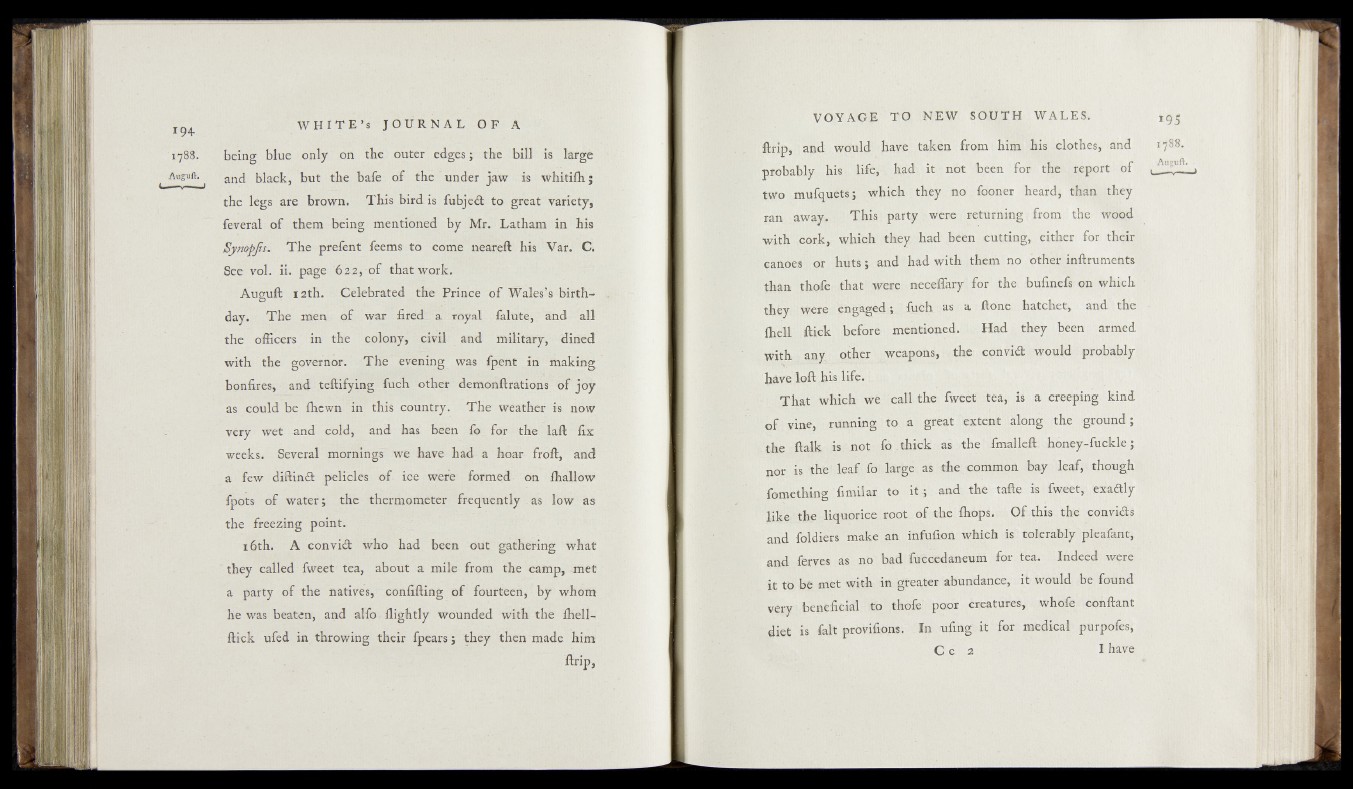
1788. being blue only on the outer edges; the bill is large
Atiguft. an(j blacky b-ut the bafe of the under jaw is whitifh. j
the legs are brown. This bird is fubje£i to great variety,
feveral of them being mentioned by Mr. Latham in his
Synopjis. The prefen t feems to come neareft his Var. C.
See vol. ii. page '62.2p.of that work.
Auguft 1 2th. Celebrated the Prince o f Wales’s birthday.
The men o f . war firedi a royal Ihlutei and all
the officers in the ’colony» civil and military, dined
with the governor. The evening was Iftem ,jn making
bonfires, and teftifying fuch other demonftrations of joy
as could be fhewn in this country. The weather is now
very wet and cold, and has been fo for the laft fix
weeks. Several mornings we have had a hoar froft, and
a few diftindt pelicles of ice were formed on Shallow
fpots o f water; the thermometer frequently as low as
the freezing point.
16th. A eonvidl who had been out gathering what
" they called fweet tea, about a mile from the camp, -met
a party of the natives, confiding of fourteen, by whom
he was beaten, and alio, flightly wounded with the Ihell-
ftkk ufed in throwings their fpears; they then made him
flirip,
jfiripj a id would4-hav^e taken from him his clothes, and
probably bis life, had|||t not been for* the report of
two mufquets; which they n o . fooner heard* than they
ran atvay, ' This party - were returning, from the wood
with cork, which they, had been cutting, either foft their
canoes or huts* and had with them no other inftruments
than thofe that were neeeffary i/ibr the. bufinefs on which
they Were engaged j fuch as a ftone hatchet, and the
{bell ftick before mentioned. Had they been armed
with any other | weapons, ♦ the convid. would probably
have loft his life.
That; Which we call the fweet tea, is a creeping kind
o f vine* running; fq a great extent along', the ground;
the ftalk is ;jiot fo .thick as the' foialleft honey-fuckle;
nor it the' leaf fo: large as the common bay leaf, though
ffimething fimilar to i t ; and the tafte is fweet-,' exatfly
like the liquorice root of the {hops. Of this the convi&.S
and foldiers "make an infufion which is tolerably pleafant,
and forves as no bad fuccedaneum for tea. Indeed were
it to be met with in greater abundance, it would be found
very' beneficial to thofe poor creatures, whofe cosftant
diet is fait provifions. In ufiug it for medical purpofes;
C c 2 . I have